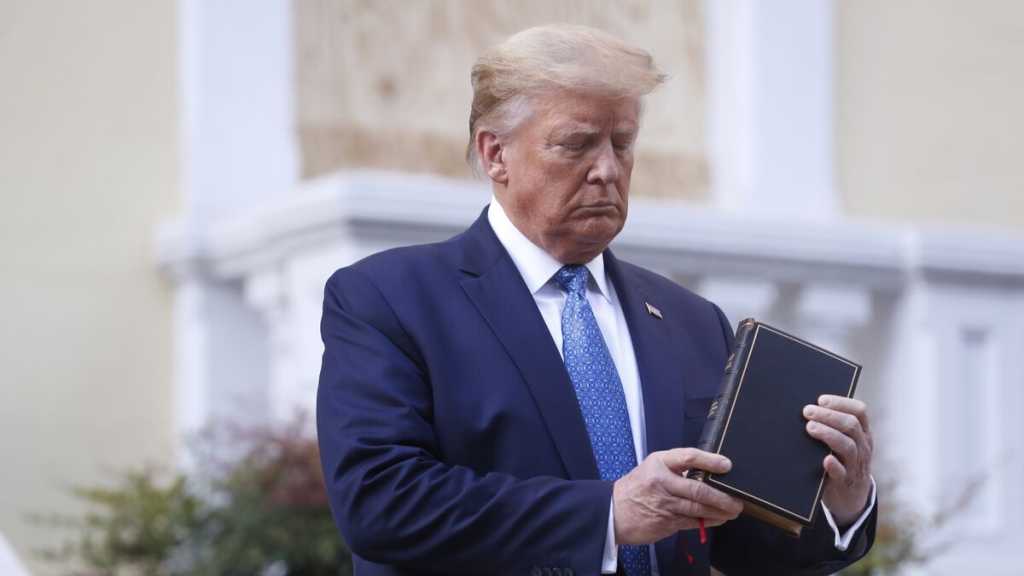Trump’s Paradoxes: The Unlikely Alliances of Evangelicals, White Nationalists, and the Jewish-American Divide

By Mohammad Hammoud
Donald Trump’s presidency highlighted a complex intersection of ideologies, revealing contradictions and controversies while attracting two starkly different groups. His inflammatory statements and legal troubles have sparked widespread debate. Trump's appeal to seemingly opposing factions—Evangelicals who support “Israel” and white nationalists who harbor animosity towards it—underscores the paradoxes of his political journey. Additionally, his polarizing figure has alienated significant portions of the Jewish-American community. The ramifications of his behavior, including allegations of “sexual” misconduct and questionable public health advice during the COVID-19 pandemic, further reveal a character that continues to perplex many.
Character and Legal Controversies
Trump's character has faced intense scrutiny since he entered politics. Accusations of “sexual” misconduct have followed him for years, culminating in a notable case where a jury found him liable for ‘
abusing and defaming journalist E. Jean Carroll, awarding her $5 million in damages [Higgins, 2023]. These allegations are part of a broader pattern of misconduct; as of late 2023, Trump faced a staggering 88 felony counts across multiple criminal investigations, including charges related to falsifying business records and mishandling classified documents [Rosenberg, 2023]. This extensive list of allegations paints a picture of a controversial figure whose personal conduct often overshadows his political messages.
Adding to the contentious nature of his presidency, Trump made headlines during a press briefing on April 23, 2020, when he suggested using disinfectants to treat COVID-19. This statement drew widespread condemnation from medical professionals, who warned against the dangers of ingesting or injecting disinfectants [Stuckey, 2020]. Although Trump later claimed his comments were intended sarcastically, the incident revealed a troubling disregard for established medical advice and contributed to a larger narrative of misinformation during the pandemic.
These controversies did little to deter his base, demonstrating how political alignment often trumps personal morality in US politics. For many, his policies and rhetoric mattered more than his character, particularly among evangelical Christians and white nationalists, two groups whose support for Trump defied expectations.
Evangelical Support and Trump’s "Israel" Strategy
Evangelicals played a crucial role in Trump’s rise, rallying behind his promises to appoint conservative judges and protect Christian values. His overt support for “Israel” was another major draw. Trump’s administration recognized Occupied Al-Quds as “Israel’s” capital, relocated the US embassy there, and brokered the “Abraham Accords”, solidifying his appeal to evangelicals who see “Israel” as central to their religious beliefs. This transactional relationship was clear: evangelicals overlooked Trump’s personal flaws in exchange for policies advancing their agenda.
Trump’s pro-“Israel” stance resonated with some Jewish Americans, but not all. Despite his strong ties with “Israel”, his inflammatory rhetoric and associations with far-right groups alienated many in the Jewish community, most of whom lean liberal. Polls indicate that only about 30% of “Jewish” voters supported Trump in 2020-2024, reflecting their discomfort with his divisive rhetoric and perceived undermining of democratic norms.
White Nationalists: An Uneasy Alliance
Simultaneously, Trump courted white nationalists, a group diametrically opposed to evangelical ideals of inclusivity. His rhetoric on immigration, promotion of "America First" policies, and reluctance to denounce white supremacy during key moments, such as the Charlottesville rally, energized this base. White nationalists found common ground with evangelicals on issues like immigration and nationalism, despite fundamentally different motivations.
This uneasy coalition underscores Trump’s unique ability to align opposing factions under a broad populist banner. For white nationalists, Trump represented a defender of their vision of a racially exclusive America. For evangelicals, he was a flawed vessel for advancing their moral and religious priorities.
The Jewish-American Divide
Trump’s embrace of figures like Steve Bannon and his inflammatory rhetoric alienated many Jewish Americans, who viewed his administration as emboldening “anti-Semitic” elements. While his policies on “Israel” won praise from Jewish conservatives, they did little to sway the majority of Jewish voters, who remained skeptical of his overall agenda. This divide highlights the difference between support for “Israel” as a geopolitical ally and concerns about domestic policies and rhetoric. Jewish Americans saw Trump’s embrace of far-right groups as incompatible with their values, even as his administration strengthened US-“Israel” ties.
Conclusion: A Presidency of Paradoxes
Donald Trump's political journey illustrates the complexities of American politics, where character concerns and legal controversies intermingle with unexpected alliances. His ability to unite pro-“Israel” evangelicals and white nationalists, despite their opposing worldviews, speaks to the transactional nature of his political strategy. Understanding Trump’s appeal requires examining how political objectives can override personal ethics and ideological consistency. As Trump continues to face legal challenges and public scrutiny, the importance of character in political leadership remains a critical discussion point. Ultimately, the varying responses from different demographic groups, particularly Jewish Americans, highlight the nuanced landscape of support and opposition that defines Trump’s legacy.
Comments




